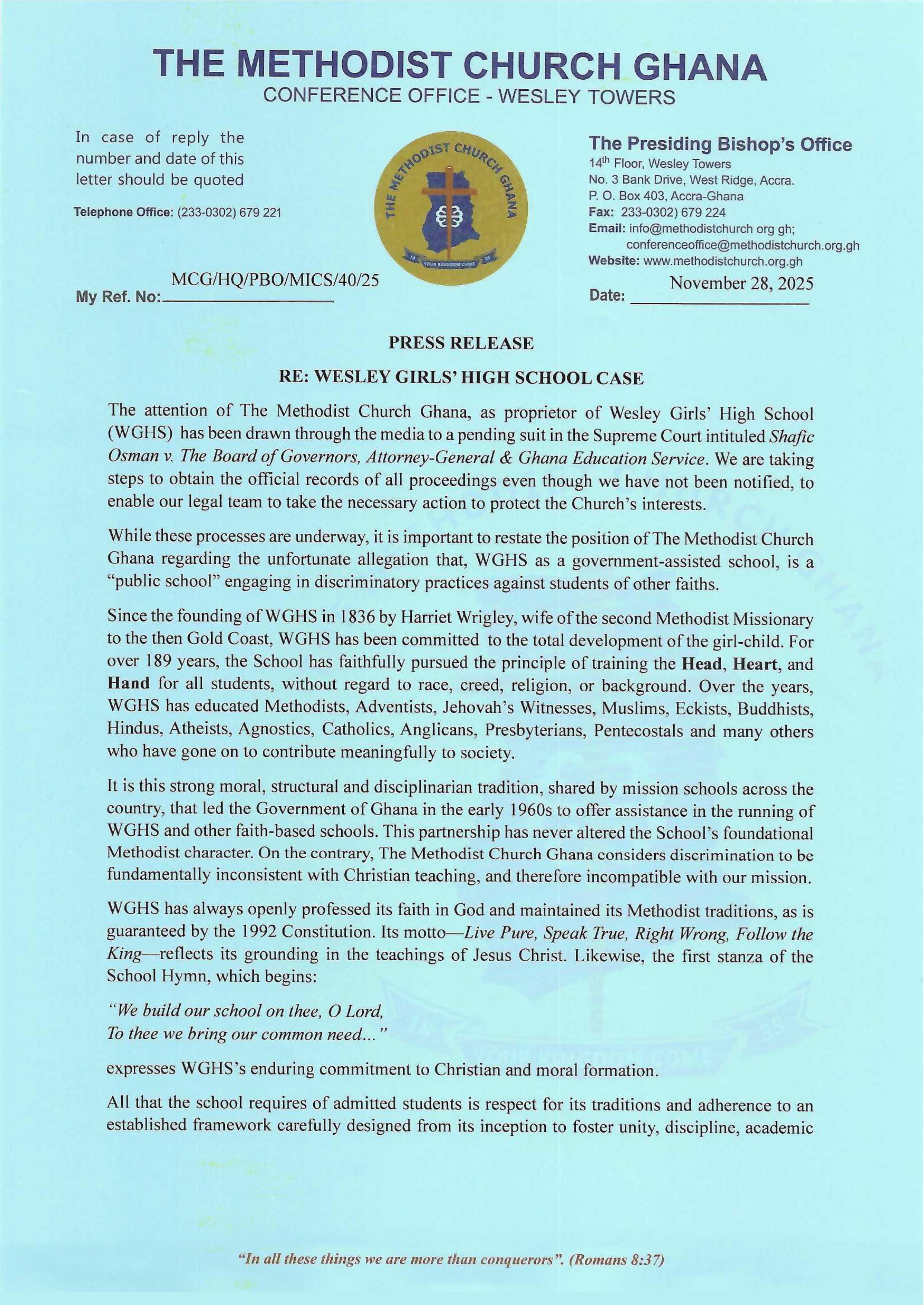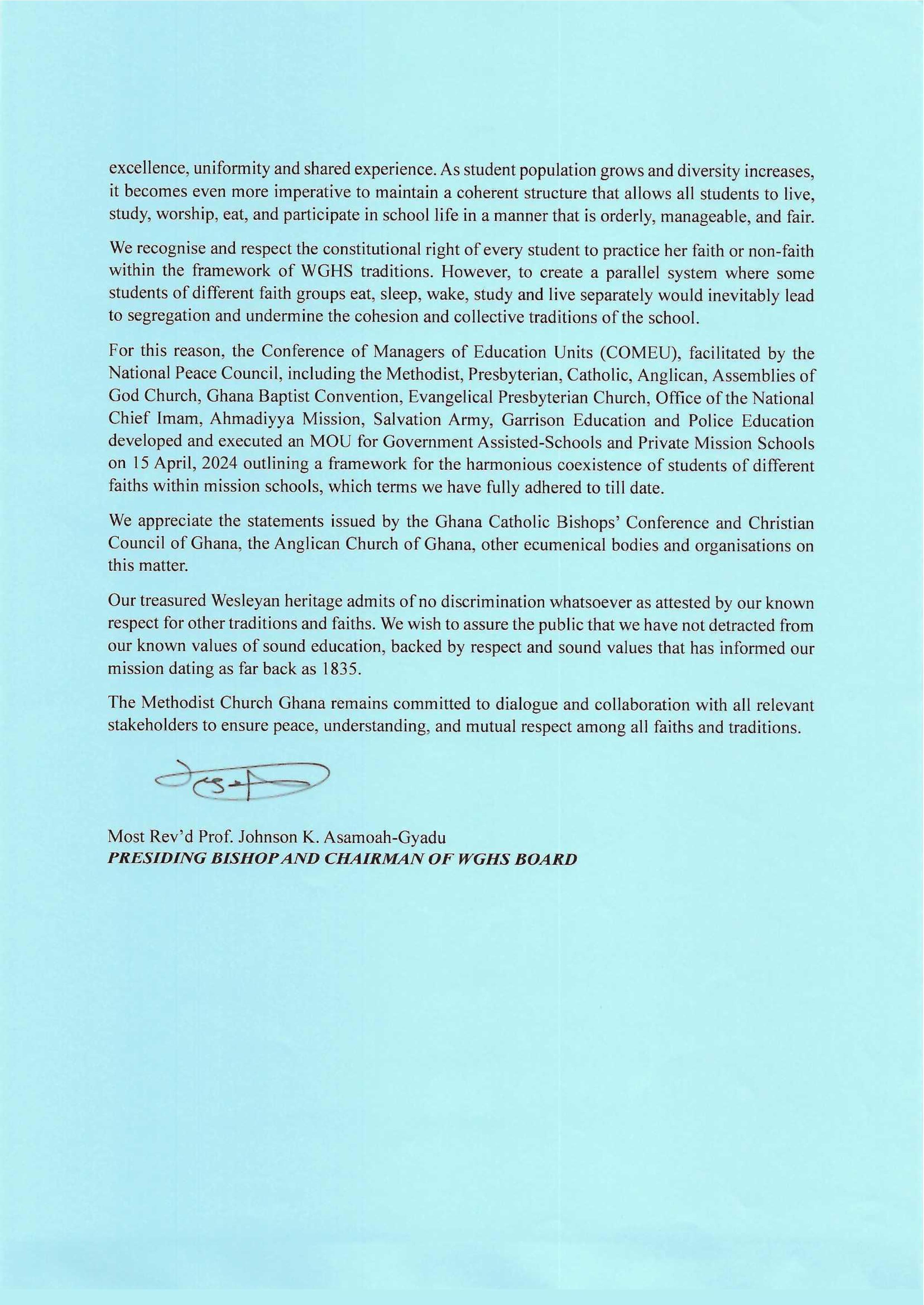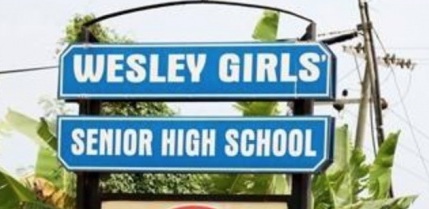The Methodist Church of Ghana has strongly rejected allegations of religious discrimination at Wesley Girls High School (WGHS), insisting the school’s long-standing traditions are lawful, inclusive, and vital for maintaining unity and discipline.
In a statement released on Friday, November 28, the Church addressed reports of a Supreme Court suit, Shafic Osman v. The Board of Governors, Attorney-General & Ghana Education Service. Although it has not yet been formally notified, the Church said it is taking steps to obtain official records to enable its legal team to respond appropriately.
The Church emphasised that claims portraying WGHS as a “public school” engaging in discriminatory practices are unfounded. Since its founding in 1836 by Harriet Wrigley, the school has pursued a mission of developing the “Head, Heart and Hand” of the girl-child without regard to race, religion, creed, or background.
Highlighting nearly two centuries of educating students from diverse faiths—including Muslims, Adventists, Catholics, Jehovah’s Witnesses, Eckists, Buddhists, Hindus, atheists, and agnostics—the Church noted that many alumni have gone on to make positive societal contributions. This, it said, reflects Methodist teaching that discrimination is incompatible with Christian values.

The Church also clarified that government support offered to faith-based schools in the early 1960s did not alter WGHS’s Methodist character. The school has always openly professed its Christian foundation, represented through its motto, “Live Pure, Speak True, Right Wrong, Follow the King”, and its school hymn, which affirms a commitment to Christian and moral formation.
Admitted students are required only to respect the school’s traditions and follow a framework designed to promote uniformity, discipline, order, and shared experience. The Church argued that with enrolment increasing and diversity expanding, maintaining a unified structure is critical for all students to live, study, worship, and participate cohesively.
While recognising students’ constitutional right to practice their faith, the Church maintained that creating parallel systems—such as separate routines for eating, sleeping, worship, or study—would lead to segregation and weaken the school’s collective culture.

The Church cited the Memorandum of Understanding signed on April 15, 2024, by the Conference of Managers of Education Units (COMEU) and facilitated by the National Peace Council. Endorsed by major Christian bodies and Muslim leadership, including the Office of the National Chief Imam and the Ahmadiyya Mission, the MOU provides a framework for harmony in mission schools, which WGHS continues to uphold.
Finally, the Methodist Church expressed appreciation for public support from the Ghana Catholic Bishops’ Conference, the Christian Council of Ghana, the Anglican Church, and other ecumenical groups who have issued statements in solidarity.





